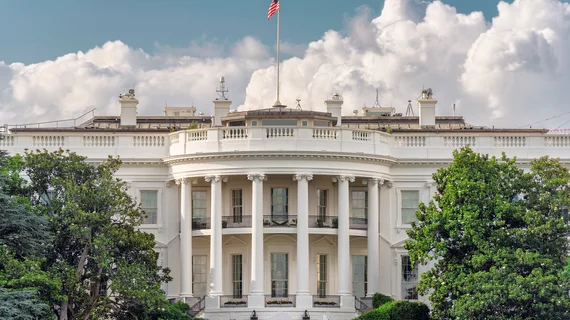Biden administration announces new actions to help hospitals keep up with omicron
The Biden administration announced new actions on Tuesday designed to help protect individuals against omicron and ensure hospitals and health systems have the resources necessary to combat the variant.
Omicron has now surpassed delta as the dominant coronavirus variant in the U.S., with approximately 73% of new national cases caused by the variant as of Dec. 18, according to the CDC. The new moves are meant to build on the president’s Winter Plan released earlier this month.
As part of the increased support for hospitals, an extra 1,000 military doctors, nurses, paramedics and other medical personnel will be ready to be deployed to institutions during January and February. Six additional emergency response teams comprised of more than 100 clinical experts will also prepare for deployment where needed.
Additionally, Federal Emergency Management Agency teams are working to assess hospitals' needs ahead of possible winter surges, expanding bed capacity and making additional supplies available.
The administration is also making a big testing push, purchasing 500 million at-home, rapid tests that will be sent out for free beginning Jan. 1. The feds will also set up new testing sites across the U.S. before Christmas, with the first opening in New York City this week.
Gerald E. Harmon, MD, president of the American Medical Association (AMA), which has continually encouraged people to get vaccinated, was quick to back the president’s actions.
“The Biden administration’s announcement today to deploy additional medical personnel to COVID-burdened hospitals and stand up new mass vaccination sites across the country will help alleviate some of the burden on the nation’s already overwhelmed healthcare workforce,” Harmon said Dec. 21.
American Hospital Association (AHA) President and CEO Rick Pollack echoed that sentiment and urged the administration to use “all available tools at their disposal and not leave any resources or support on the sidelines.”
Read more about the announcement here.

